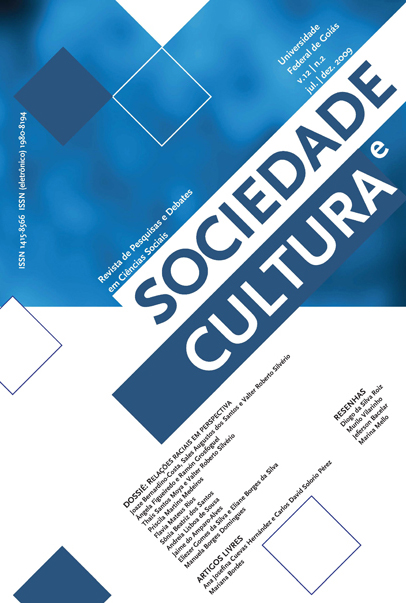Negotiating differences. Analysis of constructions of therapeutic “alternative” identity in Buenos Aires health field
DOI:
https://doi.org/10.5216/sec.v12i2.7008Keywords:
alternatives therapies, collective identities, Laclau, Buenos AiresAbstract
On this article the author presents some conceptual elements for the analysis of alternatives therapies, usually related to the New Age movement, focusing on the idea of health field and the construction of collective identities. Concerning this last aim, the text introduce the theory of hegemony developed by Ernesto Laclau, in order to explore how alternative identities are built through operations of equivalence, reconversion and exclusion of some ‘signifiers’ that belong to the discursive formations of different medical approaches. The author reaches to the conclusion that the flexible characteristics of this identity option, allow the development of distinctive legitimating strategies for the specialists. This is a key to tackle the identity heterogeneity of this symbolic universe. At the same time, this “flexibility” presents the analytical field to discuss the potential that alternative identities have to subvert or reproduce the dominant logic impose, in the health field, by the biomedicine or scientific medicine.Downloads
Download data is not yet available.
Downloads
Published
2010-03-18
How to Cite
BORDES, MARIANA. Negotiating differences. Analysis of constructions of therapeutic “alternative” identity in Buenos Aires health field. Sociedade e Cultura, Goiânia, v. 12, n. 2, p. 343–354, 2010. DOI: 10.5216/sec.v12i2.7008. Disponível em: https://revistas.ufg.br/fcs/article/view/7008. Acesso em: 28 jan. 2026.
Issue
Section
Free Articles
License
Authors who publish in this journal agree to the following terms:
- Authors retain the copyright and grant the journal the right of first publication, the work being simultaneously licensed under the Creative Commons Attribution License, which allows the sharing of the work with acknowledgment of authorship and of the initial publication in this journal;
- Authors are authorized to enter into additional contracts separately, for non-exclusive distribution of the version of the work published in this journal (eg, publishing in an institutional repository or as a book chapter), with acknowledgment of authorship and of the initial publication in this journal;
- Authors are allowed and encouraged to post and distribute their work online (eg, in institutional repositories or on their personal page) at any point before or during the editorial process, as this can bring productive change as well as increases the impact and the citation of the published work (see O Efeito do Acesso Livre).



